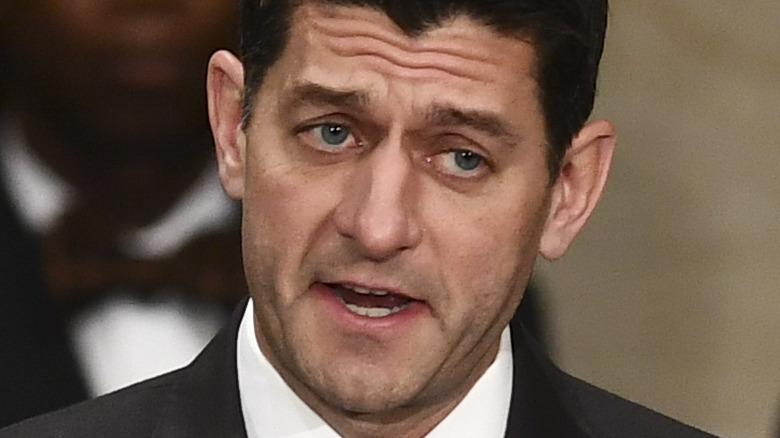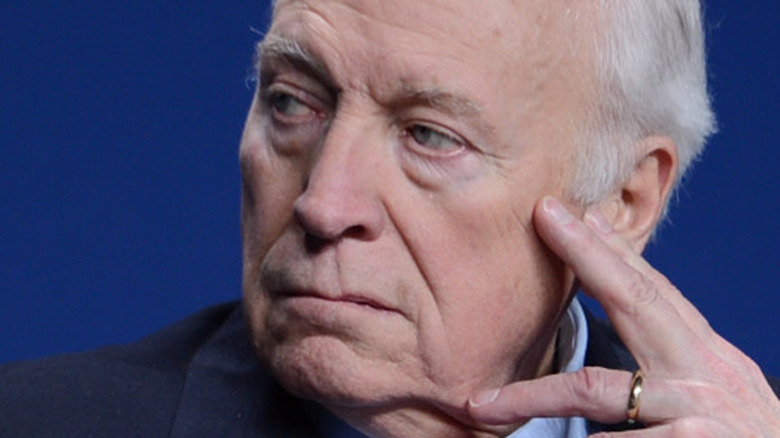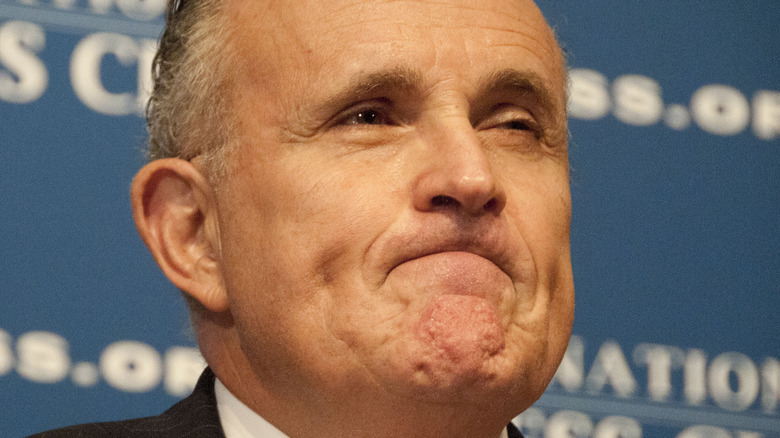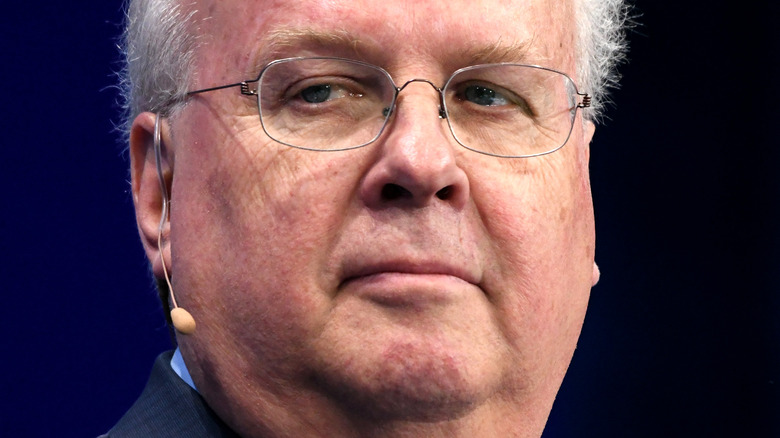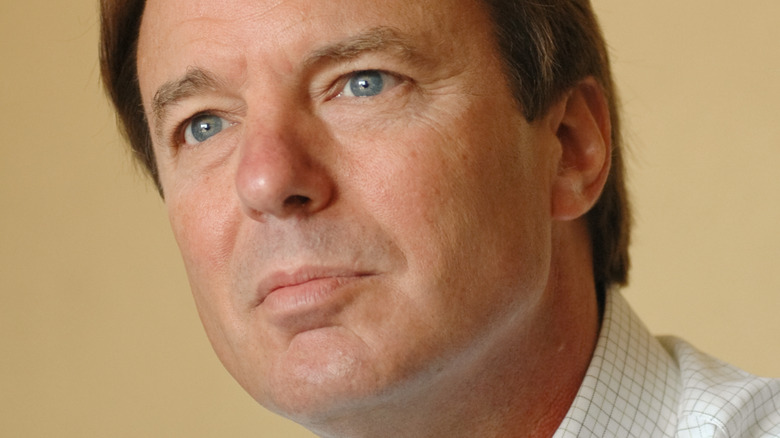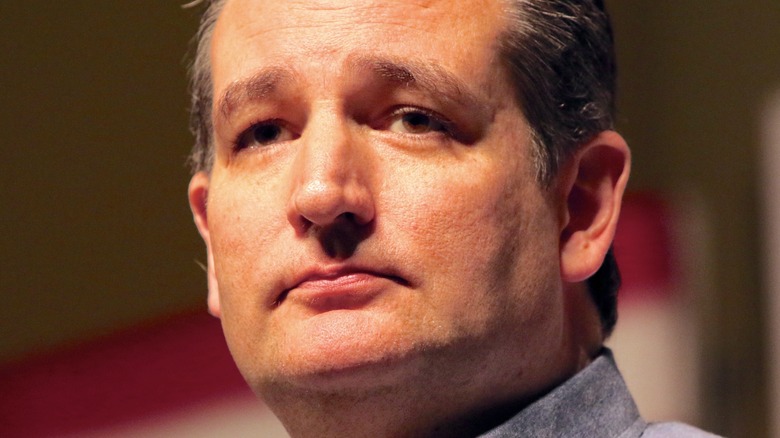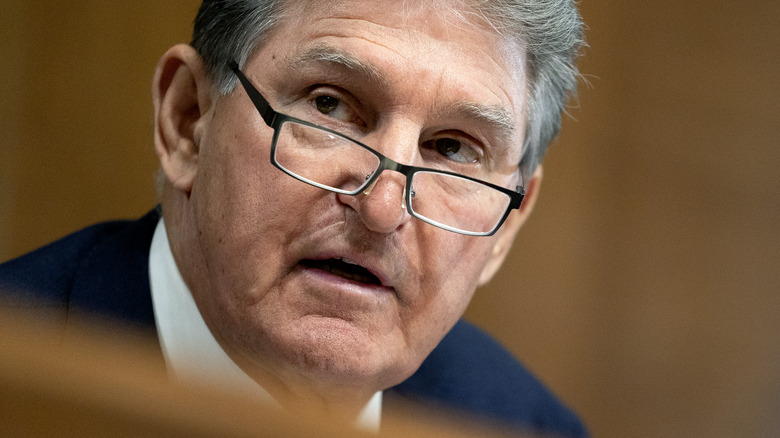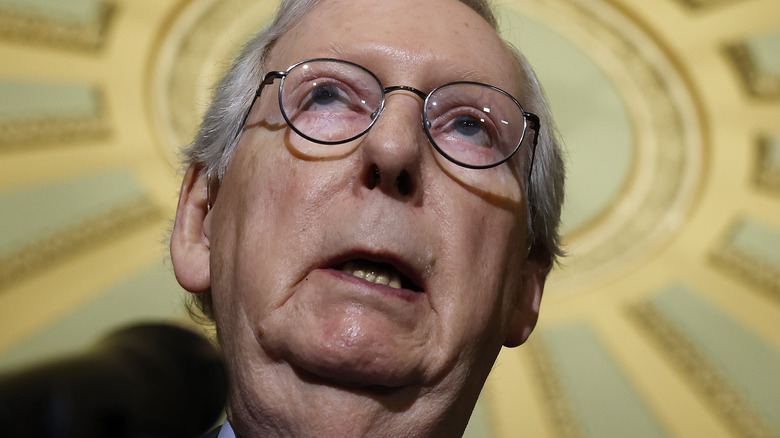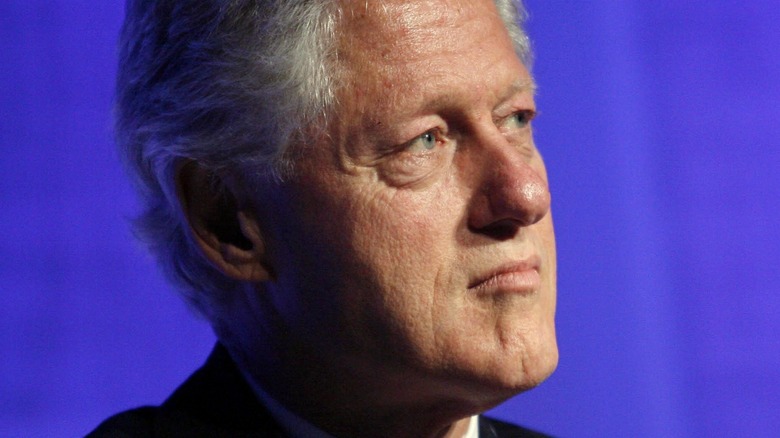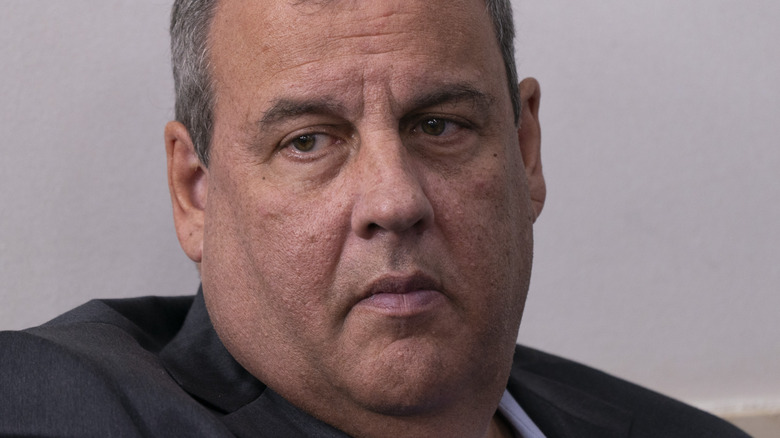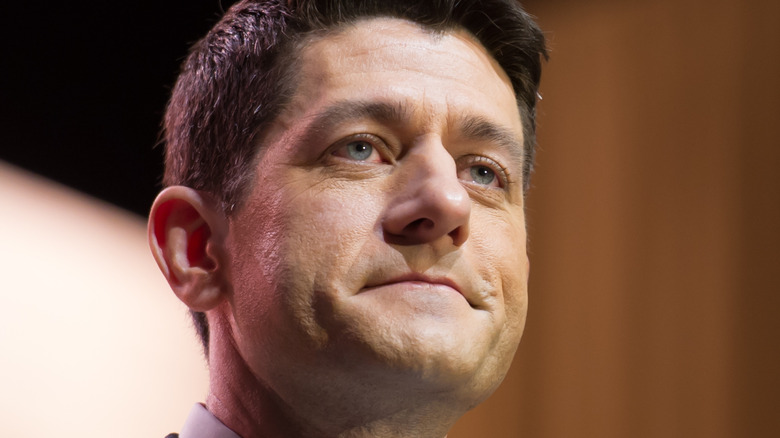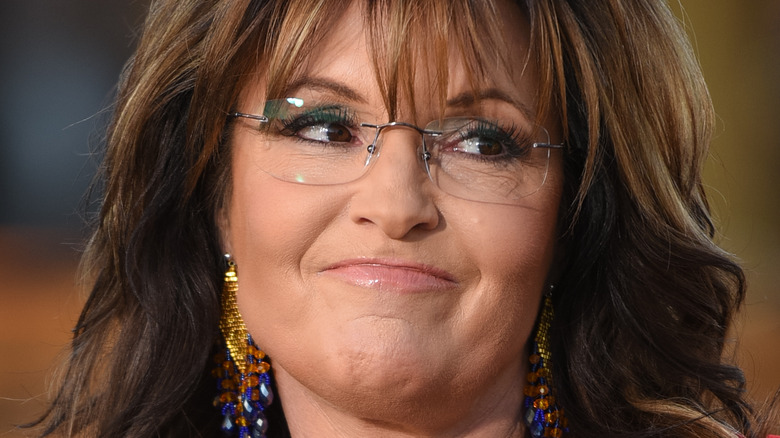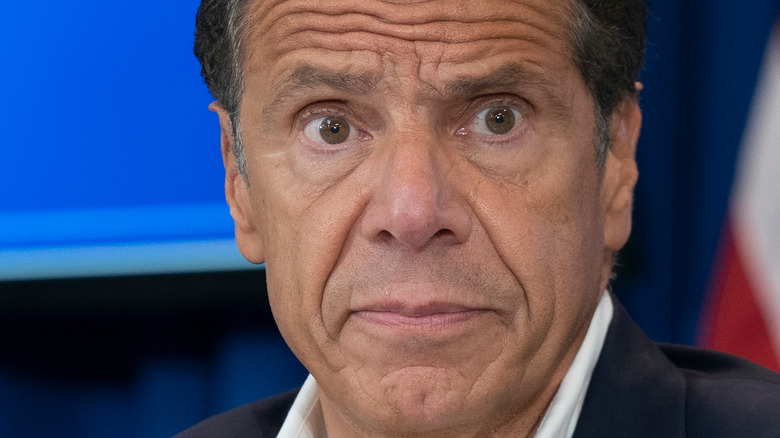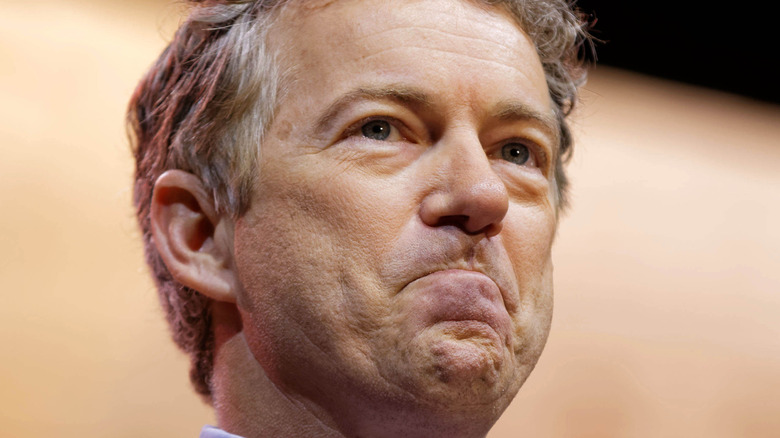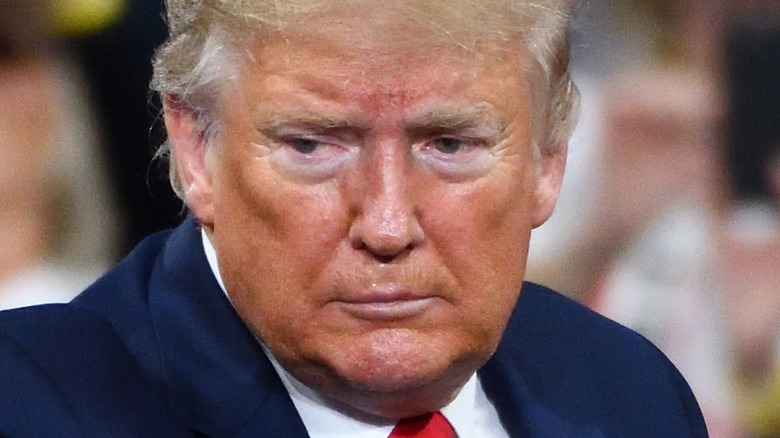The Most Arrogant Politicians
British historian Lord Acton once said, "Power tends to corrupt; absolute power corrupts absolutely." In other words, somebody's scruples and ethics decrease as their authority and ability to command others increases. So, not surprisingly, hubris is a flaw of many politicians, both sides of the political spectrum. They may (or may not) start out with good intentions. Still, it seems somewhere, somehow, their moral compass goes awry. Lies become truths, arrogance sets in, and moral decay begins.
The Merriam-Webster definition of arrogance is "an insulting way of thinking or behaving that comes from believing that you are better, smarter, or more important than other people." In addition, "an attitude of superiority manifested in an overbearing manner or in presumptuous claims or assumptions." Huh, might that sound like any high-ranking public officials?
"House of Cards" may have been fictional, but there was, without a doubt, more than a touch of reality to it. As dastardly and devious as Frank and Claire Underwood are, they still appear pretty straight-shooting, honest folk when compared to many of today's real-life governmental movers and shakers. Even some of the most beloved politicians are, in reality, not exactly the most humble of human beings. Jump in the shower and have a good scrub down with a Brillo pad, folks. We're venturing into the murky mire of modern-day statesmanship to lay bare the most arrogant politicians — and things are going to get pretty grubby.
Dick Cheney
Richard Bruce Cheney served as President George H.W. Bush's Secretary of Defense. He was also George W. Bush's Vice President during his two-term presidency. So, you would think he'd have earned his stripes as a Bush family confidant and buddy. In reality, the elder Bush believed Cheney (along with Donald Rumsfeld) had a bit too much power in his son's administration.
Speaking with Jon Meacham for "Destiny and Power: The American Odyssey of George Herbert Walker Bush," Bush Sr. described Dick Cheney's behavior as being "iron-a**." He continued, "His seeming knuckling under to the real hard-charging guys who want to fight about everything, use force to get our way in the Middle East." He also told Meacham that the former VP "became very hard-line and very different from the Dick Cheney I knew and worked with." Bush Sr. did call Cheney "a good man," but did believe his son's second-in-command "had his own empire" in the administration.
"I think a lot of people believed then, and still believe to this day that I was aggressive in defending, in carrying out what I thought were the right policies," Cheney told Fox News (via Salon). Meanwhile, CBS News described Cheney as "arrogance personified" and claimed that along with hubris, the trademarks of his vice presidency were "secrecy [and] imperiousness." They alleged the career politician used his position of power to fill his personal coffers, with a "succession of self-enriching stunts."
Rudy Guiliani
Rudy Guiliani was viewed as a figurative Batman back in the day. The New York mayor cleaned up the mean streets of Gotham with his "zero tolerance" policy on crime — and other tactics, many of which could be considered highly problematic. Guiliani was hailed a "national hero" for his response to 9/11. And, despite proving to be a polarizing figure for Republicans, he was even considered to be a viable future GOP presidential candidate. But then started his fall from grace.
In 2000, Guiliani attempted to go head-to-head with Hillary Clinton before abandoning his sinking senatorship campaign. Eight years later, he took a shot at becoming the Republican presidential nominee. He failed miserably, ranking, as The New York Post reported, "dead last in the field." So, how did Batman suddenly become Man-Bat? "But as in all tragedies, a hero's greatest strengths turn and become his greatest weaknesses," the outlet wrote at the time. "Giuliani's arrogance and refusal to conform have undone his presidential ambitions."
Esquire was less diplomatic, calling Guiliani "a colossal a**hole," citing his "icy insincerity," "ghoulish smile," and how "behind his back, [people] compare him to Mussolini." They went on to claim he's "a megalomaniac, a despot, a monster." All traits that made for a faultless fit to be Donald Trump's sidekick, an observation that wasn't missed by The New Yorker. "The former mayor's theatrical, combative style of politics anticipated — and perfectly aligns with — the President's," they wrote in an article titled "How Rudy Guiliani Turned into Trump's Clown."
Karl Rove
Donald Trump once called Karl Rove a "pompous fool" (via The Hill); Intelligencer wrote he was once the poster boy for "state-of-the-art in Republican evil." Rove's also been dubbed a liar, liar, pants on fire. His autobiography "Courage and Consequences: My Life as a Conservative in the Fight" was an attempt to "set the record straight," but Truthout.org wrote that the book was "a pastiche of lies ... designed to rehabilitate the record of the Bush-Cheney years."
While working in the White House, Rove evidently believed George W. Bush was the 2000s version of William McKinley and he the next Mark Hanna, a top advisor to the 25th president. But as Politico put it, "Rove fails where his hero succeeded." The Atlantic shared a similar sentiment: "Modeling his boss on McKinley, in other words, seems more like a consequence of Rove's ego than of any kind of sound political instincts."
Rove's feelings about another president, however, are significantly less respectful. "[Barack Obama is] the guy at the country club with the beautiful date, holding a martini and a cigarette that stands against the wall and makes snide comments about everyone," Rove sniped in 2008, per ABC. The media was quick to pick up on the underlying subtext. "Karl Rove says Barack Obama is arrogant," HuffPost wrote. "Arrogant, of course, is a euphemism. In the monochromatic bunkers from which old-schoolers cling to power, the true word they use is 'uppity' when hurled at blacks." Meanwhile, Rove later doubled down on his remarks during an interview with Bill O'Reilly.
John Edwards
John Edwards was once touted as being the new Bobby Kennedy. "[He's] a smart politician who knows the value of modesty," Newsweek raved in 2007. "When asked about Robert F. Kennedy, he says simply, 'I don't deserve to be compared to him.'" Edwards ran on the VP ticket during John Kerry's 2004 presidential battle against George W. Bush. In 2008, he campaigned to be the presidential candidate, but was ultimately beaten out by Barack Obama. Only a few years later, outlets like Reuters would chronicle "the rise and fall" of the politician.
Edwards' liberal cred was seriously dented following a Washington Post interview with his hairstylist. Joseph Torrenueva revealed Edwards paid up to $500 for a haircut — and once even splashed out $1,250 to fly the stylist to Atlanta to snip his auburn locks. But, the real kicker came post-campaign: Edwards had an affair with staffer Rielle Hunter, resulting in a baby — while his wife was terminally ill. Edwards lied about it and even paid a staffer to pretend the child was theirs. The National Enquirer broke the affair story in 2006, but it flew under the radar until August 2008, per Politico. However, Edwards' fall from grace wasn't over yet. Per CBS, he faced prison over claims he'd used his campaign fund to funnel $1 million in "secret donations" to help cover up his affair. All charges were eventually dropped.
In an essay for Psychology Today, psychiatrist Dr. Russell Razzaque wrote Edwards' story "reminds us of the self-destructive potential of the ego."
Ted Cruz
When Ted Cruz ran against Donald Trump for the Republican presidential nomination in 2016, Business Insider dubbed their mud-slinging power battle "one of the dirtiest in recent memory." While Cruz refused to endorse Trump following the latter's win, the senator from Texas did a 180, toadying up to Trump to further his political ambitions. The sudden change in attitude led to Trump switching from calling him "lying Ted" to "beautiful Ted," per Business Insider.
It seems Trump is one of the few who considers Cruz "beautiful." According to Intelligencer, the politician persistently "puts what's good for him ahead of what's good for" his party and "everyone in congress hates [Cruz]." His old Princeton pals appear to, too. They remember Ted as "abrasive" and "arrogant," among other things. A former Bush aide told MotherJones Cruz is "hyper-arrogant and widely despised," citing his "personality" as the issue and calling him "a big a**hole."
Cruz's behavior came under fire in a big way in February 2021. Per CNN, while his home state suffered a "historic winter storm" that left "millions without power and water," Cruz jetted off to tropical and toasty warm Cancun. And he would have gotten away with it if it wasn't for those pesky passengers with cellphone cameras. Cruz was quick to joke about it and more or less placed the blame on his kids.
Joe Manchin
Joe Manchin became US Senator for West Virginia in 2010 — and for a hot minute, the Democrat (at time of posting) looked like an okay guy, albeit a multi-millionaire and a tad polished. "Manchin has skillfully managed his image, to stay viable in a state that went from a Democratic to a Republican majority," The Atlantic wrote, going on to posit Manchin voted for what he believed would further his career rather than what was best for constituents and his political party's aims and ideology.
That could well explain why Manchin vetoed the "Build Back Better Act" at the very last minute in 2021. The bill would have majorly benefited the (high number of) West Virginians living below the poverty line — expanding Medicare coverage for the elderly and needy and child care provisions for poor and struggling working families. However, Manchin reportedly confessed that "he thought parents would waste monthly child tax credit payments on drugs instead of providing for their children," according to HuffPost.
Not surprisingly, Democrats were furious over Manchin's bombshell dismissal, and Bernie Sanders ripped into him during an interview with Rachel Maddow. Sanders accused Manchin of "an arrogance I think is unacceptable" over his refusal to "fight for [Democratic] ideas" and West Virginia's poorest citizens' best interests. "What bothers me is people like Manchin turning their backs on the people of this country and basically saying if I don't get everything I want, I'm not going forward. That is not acceptable to me," Sanders charged.
Mitch McConnell
Senate Minority Leader Mitch McConnell was called one of "The Most Influential People" in the world by Time in both 2015 and 2019. He's also been called "a nasty, arrogant man with the mindset and beliefs of a 19th Century plantation owner" by The New Jersey Globe. Or, as Washington Monthly once wrote, "McConnell defines 'arrogance.'" In the accompanying editorial for the Kentucky senator's 2015 Time listing, John Boehner gushed, "Mitch McConnell's mind is a marvelous machine. He sees the whole field, instantly assessing opportunities and perils."
Boehner went on to state, "He loves America and our Constitution. He shares Ronald Reagan's vision of our country as a special place, blessed by God — a 'shining city on a hill' — and he works every single day, step by step, to get us closer to realizing that vision." However, "Embedded" podcast host Kelly McEvers claims the career politician places his own goals and thirst for power over the public's well-being.
"Winning is very important to Mitch McConnell," McEvers, whose "team spent months reporting on [McConnell]," told NPR. "His critics would say that this means, you know, he's less concerned about specific policies or signature pieces of legislation, but rather tactics that will keep him in power." And McConnell's constitutional "love" was nowhere to be seen when he threatened corporations they would face "serious consequences" if they publicly opposed Republican ideologies, per Vox. Free speech, schmee schmeech.
Bill Clinton
Bill Clinton, Andrew Johnson, and Donald Trump are the only presidents to have been impeached in US history. Clinton's impeachment followed repeated lies about his affair with White House intern Monica Lewinsky. "I did not have sexual relations with that woman," he declared under oath, leading to a charge of perjury, in addition to obstruction of justice for allegedly persuading staffers to cover up the affair, per Time.
The 49-year-old POTUS portrayed the 22-year-old as an emotionally unstable fantasist; Lewinsky's career and personal life were left in tatters. She became a national punchline — and was slut-shamed and body-shamed for decades. As for Clinton? All charges were dropped, and it was business as usual. "Slick Willy" blamed a Republican witch hunt for his legal dilemma, which was more than partially true; they pursued him with bloodthirsty zeal. But he handed them all the ammo needed.
"[Clinton] carries this sense of having been perpetually wronged — the game is only fair when he wins," The Atlantic claims in a piece titled "The incredible arrogance of Bill Clinton." Per Salon, 42's been embroiled in multiple scandals and sleazy dealings — although still only a fraction of what conspiracy theorists and alt-right zealots would have the public believe. The outlet wrote, "A large share of Bill Clinton's post-presidency speaking gigs were for special interests that benefited greatly from his administration's policies (e.g. Wall Street and deregulation), or special interests that stood to benefit from Hillary's current or future political power."
Chris Christie
Chris Christie happens to be such a beach buff he even broke his own orders to enjoy a sandy sabbatical. As NJ.com reported, the New Jersey governor got caught on camera chillaxin' on a beach that he'd ordered to be closed during a budget beef in 2017.
Christie's approval ratings were already at an all-time low — even before his shoreline shenanigans. His blatant disregard for adhering to rules he imposed on others did little to help his cause. According to the Monmouth University Polling Institute, "two-thirds" of the Garden State hoi polloi went in on Christie in the wake of "beachgate," saying they were "disgusted" and believed him to be a "hypocrite" and "arrogant." "It really is difficult to drive approval ratings into the single digits barring something like a criminal conviction," the Institute's director said in a statement. "However, you have to admire Christie's seeming tenacity for trying to get his numbers down to that level." Respect.
The Federalist predicted "Beachgate" would spell the end for Christie. "Therein hangs a lesson for all politicians about the difference between populism and arrogance," they wrote. "Voters will often forgive or even cheer high-handedness and abusive behavior from their leaders so long as they feel they are standing up for them. But they will never forgive those who treat the perks of public office as something to which they are entitled." Sure enough, Christie was voted out of office in 2018.
Paul Ryan
Much has been made of Paul Ryan's admiration for Ayn Rand; he's even said the Libertarian's work is what sparked his interest in politics. Though he downplayed his fandom to the National Review in 2012 — he said he "enjoyed" her books but does not align with her "atheist philosophy" — one might say some of his work in public office aligns with Rand's anti-altruism. Per OnTheIssues.org, while Ryan was the House Representative for Wisconsin's 1st District, he consistently voted "no" on legislation aimed at helping poor and working-class citizens. He voted "yes" on any bills benefiting corporations, banks, and the rich.
Salon.com didn't hold back when it came to Ryan. They called the now-former speaker of the House "an arrogant clown drunk on years of flatterers lying about how smart he is." They claimed the "GOP Rep. thinks he's a Randian hero but is quickly learning that even conservatives find his arrogance revolting." In another piece, Salon branded him "arrogant, manipulative, deceitful, remorseless."
In 2018, as it became apparent Ryan would very likely lose his congressional seat, he announced he was retiring. The career politician may have saved face by dropping out before being voted out. But, any hopes of saving his reputation or salvaging any integrity were long gone. "Ryan leaves his endangered majority convinced he has done his job well," Intelligencer mused. "It is a triumph of his own propaganda that so few people believe he is actually sincere about this."
Sarah Palin
A beauty queen who was once crowned Miss Wasilla, Miss Congeniality, and placed second in 1984's Miss Alaska, Sarah Palin is renowned for being "fiercely competitive" and loves hunting and fishing, per Time. She's a mother and a wife, and she prides herself on being a plain speakin' "hockey mom."
However, Palin's public facade soon slipped after becoming John McCain's running mate in the 2008 presidential election. Per The Atlantic, Palin started on a high, with a rousing speech that made her "the star of national politics." She railed against government corruption and accused Barack Obama of mocking "working people" for their love of guns and religion. "At first blush she came across as a Christian 'family values' no-nonsense conservative," wrote HuffPost in 2010. "Then, the press started poking around and found delightful amounts of nonsense in Sarah's closets." One of multiple examples: Palin long preached about the sanctity of marriage — all while she and her husband battled rumors of cheating, which they both vehemently denied. The couple announced their divorce in 2019.
After Palin gave one of her many speeches in 2008, HuffPost remarked, "But there's another kind of arrogance, perhaps harder to spot at first, an arrogance that apparently doesn't even recognize itself as such, a sanctified, self-satisfied presumptuousness that flows from sheer naïveté about oneself and the world and manifests itself in giddy ambition."
Andrew Cuomo
While he was the governor of the Big Apple, Andrew Cuomo was renowned for being driven, ambitious, and occasionally brutish. "He was a smart, shrewd, and persevering figure who could be short-tempered to the point of abusive," wrote Politico. But then, Cuomo's battle with Donald Trump over COVID made him a hero to many. "You know people are going around calling themselves Cuomosexuals?" Ellen DeGeneres asked during an interview. "I think that's a good thing. I don't think it's a bad thing," he replied. The talk show host maintained it was a positive reaction, stating that "people are in love with" the politician.
However, the love affair ended abruptly. New Yorkers became exasperated at Cuomo's ever changing and seemingly nonsensical COVID mandates — and when New Yorkers are exasperated, it rarely ends well. Cuomo's fall from grace began as news broke of his many cover-ups, deceptions, and lies. "As each new bit of misconduct is revealed, more legislators turn against him," the New York Post wrote in March 2021. "Resulting headlines then lead more New Yorkers to turn on him in disgust."
Then came the tidal wave of sexual misconduct allegations. "[Cuomo] needs to go immediately," The New York Times columnist Bret Stephens demanded. "What I find somewhat amazing is that more New Yorkers didn't recognize sooner what a repulsive, repellent, repugnant, revolting, retrograde, rebarbative, reprobative reptile they had in the governor's office." Just months after the New York Post called him "arrogant," the governor resigned on August 10, 2021.
Rand Paul
Per Rand Paul's website, he's "a hard-working and dedicated physician — not a career politician. ... Dr. Paul's entrance into politics is indicative of his life's work as a surgeon: a desire to diagnose problems and provide practical solutions." However, some doctors would beg to differ — including the chief medical advisor to Donald Trump and Joe Biden. Anthony Fauci and Rand Paul have been duking it out since COVID hit the US.
For somebody who proclaims not to be a career politician, Paul gives a good impression of one. His relationship with Trump has grown ever tighter as he continues to echo 45's pandemic rhetoric. Paul refuses to wear a mask, insisting he's now immune from the virus as he contracted COVID in 2020. "The fake news can't stand that some people might not need to submit to the new authoritarianism of the left because they are immune to coronavirus. Modern science disagrees," Paul tweeted. The WHO, CDC, Harvard Health Institute, and John Hopkins University, among others, certainly disagree with his immunity claims. Not surprisingly, so does Dr. Fauci.
According to Vanity Fair, Fauci "basically [called] Rand Paul a shameless moron to his face" during his congressional testimony in September 2020. Then, in a "heated exchange" amid August 2021's Senate hearing, Fauci schooled Paul. "[Senator] you do not know what you are talking about, quite frankly, and I would like to say that officially," he stated, per CNBC. "You do not know what you are talking about."
Donald Trump
While going in on Donald J. Trump at a May 2016 campaign rally (via NBC News), Ted Cruz mentioned the writer of "Back to the Future II" said the Biff character was modeled after his opponent, "a caricature of a braggadocios, arrogant buffoon." A few months later, Trump won the election and he would go on to make over 30,000 "false or misleading claims" during his time in office, per The Washington Post. Some of his erroneous claims happened to be about the coronavirus, and when Trump contracted COVID, the reaction across the board was... not the most sympathetic, to put it mildly.
"His own arrogant negligence gave him COVID-19," a USA Today op-ed reads. "I reserve my compassion for others who died: health care workers, my sister's best friend, people in empty hospital rooms saying goodbyes on an iPad."
In an attempt to analyze Trump's mind, The Atlantic turned to a professional. Dan P. McAdams, Professor of Psychology at Northwestern University, noted The Donald's "narcissism, disagreeableness [and] grandiosity." He scored Trump as near rock-bottom on the "agreeableness" scale. "People low in agreeableness are described as callous, rude, arrogant, and lacking in empathy," McAdams explained. "If Donald Trump does not score low on this personality dimension, then probably nobody does."

